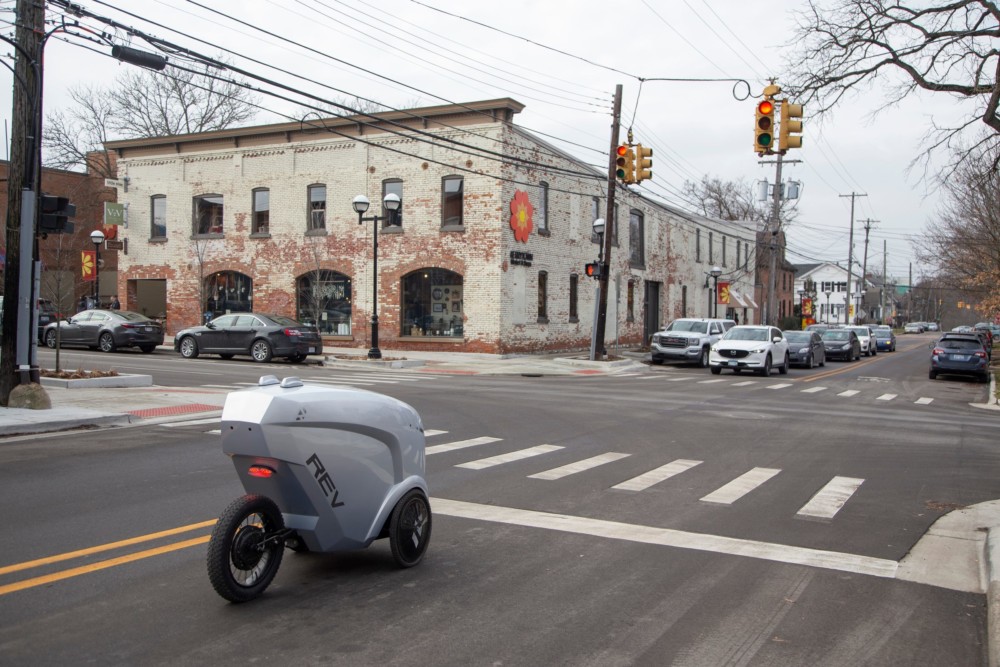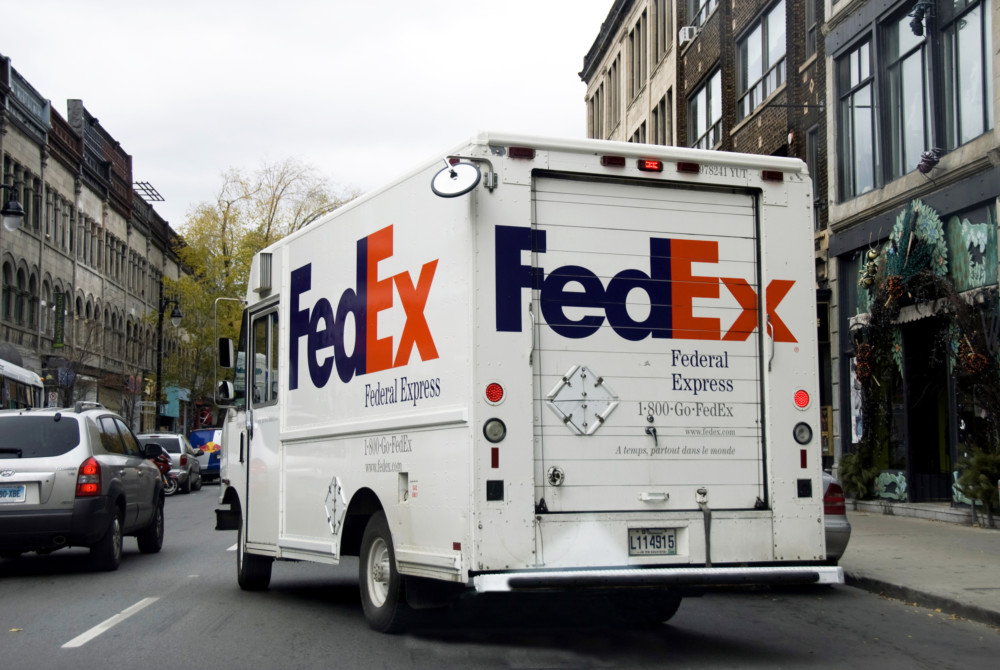By Carol Cain
Detroit Free Press
WWR Article Summary (tl;dr) A new delivery robot called the “REV-1” is being tested in Ann Arbor, Michigan. The three-wheeled autonomous robot can deliver meals and groceries without human interaction.
Detroit
The COVID-19 crisis has affected Michigan companies big and small in all kinds of ways but for startups tied to robotics and mobility, the consequences have been particularly impactful.
For entrepreneur Matthew Johnson-Roberson, the situation has given him a boost as he markets REV-1 — a three-wheeled autonomous robot he introduced and has been testing in Ann Arbor the last year to safely deliver meals and groceries.
The REV-1 does not involve human interaction other than the customer taking food or groceries out of the robot, which stands 4 feet tall and weighs about 100 pounds, with a code provided by the restaurant or store. It can hold several bags of groceries or meals.
The REV-1 is considered an e-bike, which means it can travel in both bike and car lanes at speeds of up to 15 mph as it moves along local roads. That makes for an efficient solution for delivery in condensed areas. It can travel about 3.5 miles from the restaurant to customer.
“We certainly didn’t plan for a pandemic. But it’s been cool to be able to help the community and bring food to people when it’s been hard to leave the house. We want people to be safe,” said Johnson-Roberson, an associate professor of engineering at the University of Michigan, who along with Ram Vasudevan, a fellow professor, launched their company, Refraction AI, with REV-1 being their inaugural product.
“This pandemic has totally changed consumer behavior,” said Johnson-Roberson. He compared the evolution of having products delivered by a robot with the revolution in virtual meetings through ZOOM and other services as they replace in-person events and gatherings.
“People are more willing to consider having their food or groceries delivered by a robot,” he said. “They’re getting more comfortable with the idea.”
Things at Refraction AI have been ramping up quickly, which is why they just hired Luke Schneider, a former Ford and mobility industry veteran with 25 years of experience in launching and scaling early stage companies, as their new CEO.
“As we scale up and continue to solidify the key role of delivery robots in people’s daily lives, Luke’s wealth of knowledge in the mobility space will be critical in our next phase of growth,” said Johnson-Roberson, who held the title but traded it in for the company’s chief technology officer job and will focus on what he loves best — creating breakthrough technology.
“His enthusiasm for innovation and building a sustainable mobility model for cities aligns perfectly with our vision for the future, and we’re thrilled to have him on board,” Johnson-Roberson added.
The company is adding 17 more REV-1 robots this month to go with the eight they have on the road. They have partnered with Zingerman’s Delicatessen, Miss Kim, Tio’s Mexican Café, Ray’s Red Hots, Belly Deli and Produce Station. Refraction AI charges the restaurant or store a fee of $5 to $7.50 per delivery.
He said they have been improving REV-1’s technology along the way as they have added more cameras, headlights and taillights as safety features. For now, there’s someone on a bike or scooter behind REV-1 to make sure there are no problems.
“Ann Arbor has been an amazing playground. There is so much talent here; this is a great place to launch a company like ours.”
More vehicles, fewer humans
Robots and autonomous technology are going to continue to be an essential part of our lives as they were before the pandemic. The tech represents a sweet spot of opportunity for our region.
“Connected and autonomous technology is critical to solving global issues through the emission free and secure movement of people and goods. We will continue to lead the way in this new transportation world,” said Glenn Stevens, executive director, MICHauto, and vice president of Automotive and Mobility Initiatives for the Detroit Regional Chamber.
For Ed Olson, founder and CEO of May Mobility, the pandemic threw a wrench into the company’s thriving autonomous shuttle bus business. The company, which began in Ann Arbor three years ago, launched a free shuttle bus service along with the city of Grand Rapids and a consortium including the state of Michigan, in July 2019. It was sidelined in March.
May Mobility, working with the Grand Rapids Autonomous Vehicle Initiative, went into safety mode as they worked overtime to make sure their shuttles were safe for customers. They added partitions inside the interiors, used UV-C light treatment to disinfect between rides and are using a fogger system daily to further disinfect the interior. They started rolling again in August.
“In Michigan, resiliency and innovation is in our DNA, and it’s never been more apparent than during this global pandemic,” said Trevor Pawl, chief mobility officer for the state of Michigan, which has been working on that project.
May Mobility has grown to 89 employees and operates routes in Detroit. It will add other routes in Michigan, including Ann Arbor, and in Texas in 2021. Olson estimates they have provided 260,000 rides to people by partnering with cities and others. The Michigan Strategic Fund recently awarded the company a $700,000 Michigan Business Development Program performance-based grant for its upcoming shuttle project in Ann Arbor.
Olson said the state also doubled down on its commitment to mobility by supporting things like the Cavnue project — an autonomous road planned between Detroit and Ann Arbor.
“Michigan has a proven ability to build entire industries that can transform the world, and it’s a great place for us to do it again,” he said.
___
Distributed by Tribune Content Agency, LLC.
















































































































































































































































































































































































